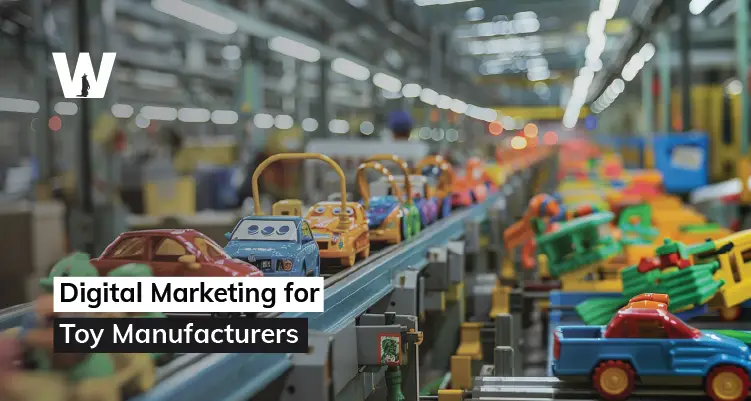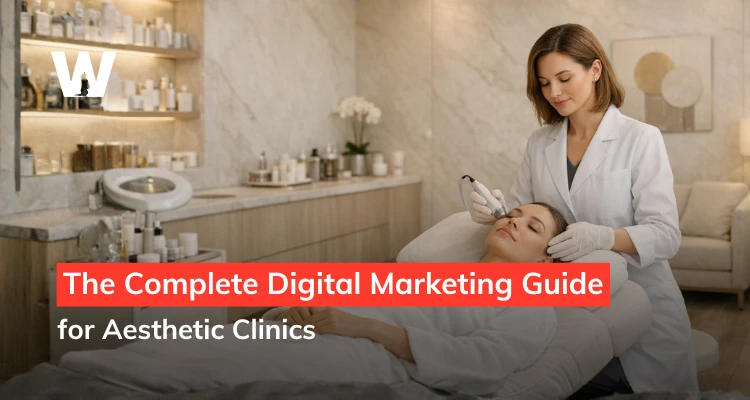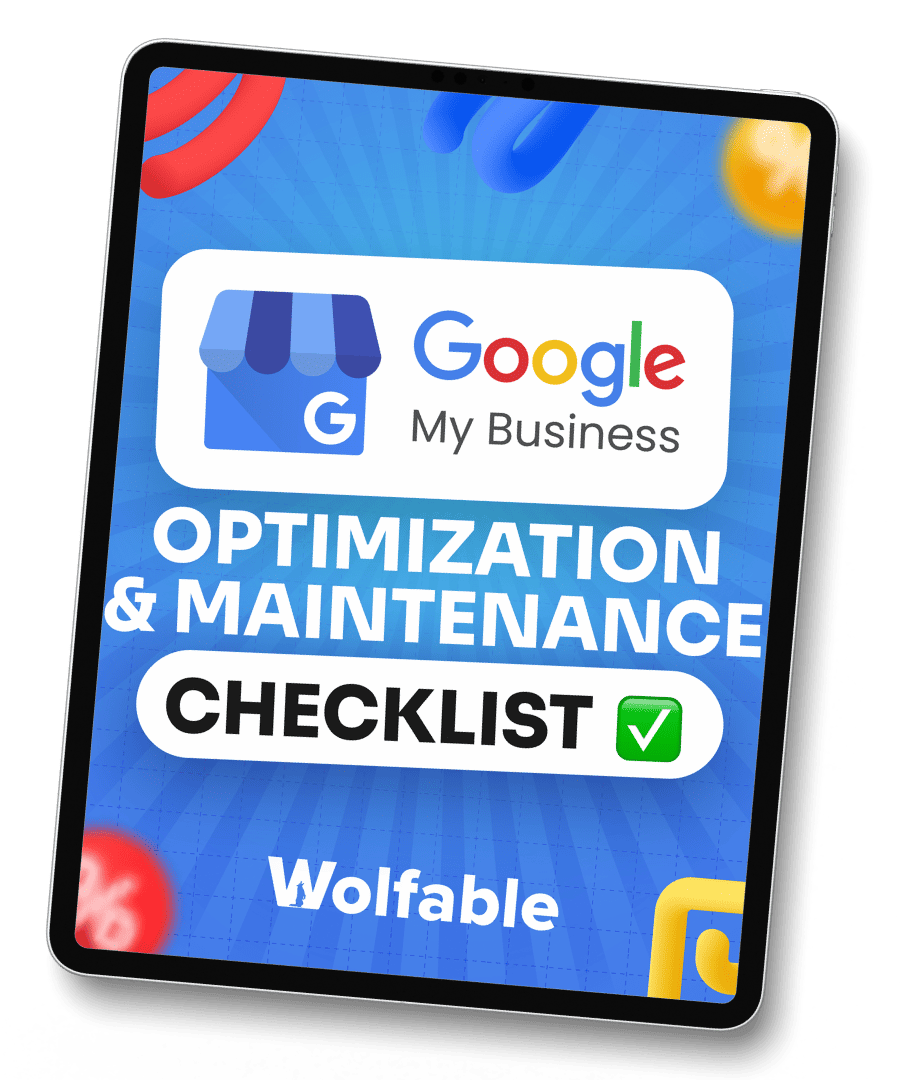Wraps up in 15 Minutes
Toy manufacturers can achieve 3x faster global expansion through strategic digital marketing that combines SEO, targeted advertising, social media engagement, and B2B lead generation. The right digital strategy transforms traditional toy businesses into globally recognized brands.
The toy industry has undergone a massive digital transformation. Modern toy manufacturers embrace comprehensive digital marketing strategies that are capturing larger market shares, reaching global buyers more effectively, and building stronger brand recognition than ever before.
Whether you're manufacturing educational toys, eco-friendly products, or traditional playthings, digital marketing for toy manufacturers is no longer optional—it's essential for sustainable growth and competitive advantage.
Why Digital Marketing Is Essential for Toy Manufacturers
Digital marketing drives 70% of modern toy purchases, with parents, retailers, and distributors researching products online before making buying decisions. Traditional marketing methods alone cannot compete with the reach and precision of digital strategies.
Toy manufacturers using digital marketing reports increased brand visibility by 250% and reduced customer acquisition costs by 40%. The digital transformation in the toy industry enables smaller manufacturers to compete with established brands through targeted campaigns and strategic online positioning.
Benefits of digital marketing for toy companies include:
- Global market reach without physical presence
- Cost-effective B2B lead generation
- Real-time customer feedback and market insights
- Precise targeting of retailers, distributors, and end consumers
- Measurable ROI and performance tracking
Digital platforms also enable toy brands to showcase product safety certifications, sustainability credentials, and educational value—key factors in modern purchasing decisions.
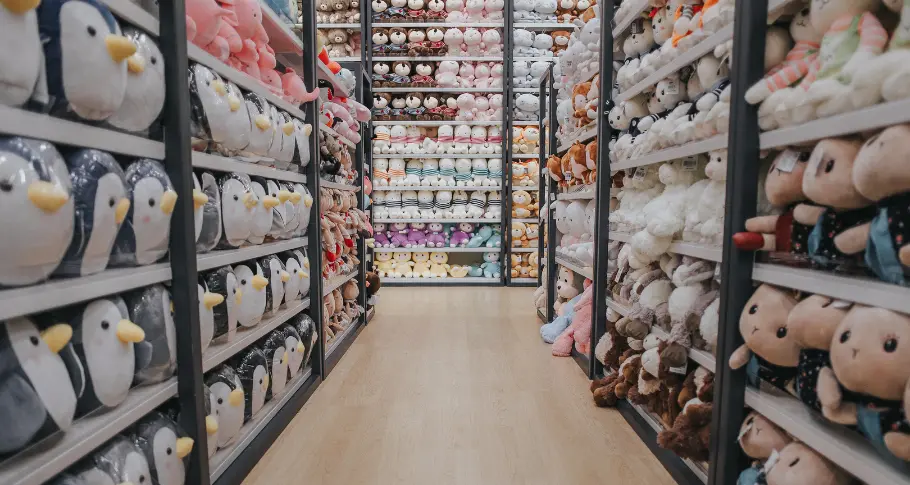
Mapping the Toy Buyer Journey: From Awareness to Repeat Purchase
The toy buyer journey has evolved into a complex, multi-touchpoint process involving parents, children, retailers, and distributors. Understanding this journey is crucial for effective marketing strategy for toy manufacturers.
- Awareness Stage: Buyers discover toy brands through social media, search engines, and influencer content. Educational toy manufacturers particularly benefit from content marketing that highlights developmental benefits.
- Consideration Stage: Potential buyers compare features, read reviews, and seek safety certifications. B2B buyers evaluate supplier reliability, product quality, and compliance standards.
- Purchase Stage: Final decisions involve price comparisons, bulk order negotiations, and relationship building with trusted suppliers.
- Post-Purchase Stage: Customer satisfaction drives repeat orders, referrals, and long-term partnerships in the toy industry.
Start Growing Your Toy Brand Globally – Talk to Our Experts
Best Digital Marketing Strategies for Toy Manufacturers
This comprehensive section covers the most effective digital marketing approaches specifically designed for toy manufacturers seeking global growth and B2B lead generation.
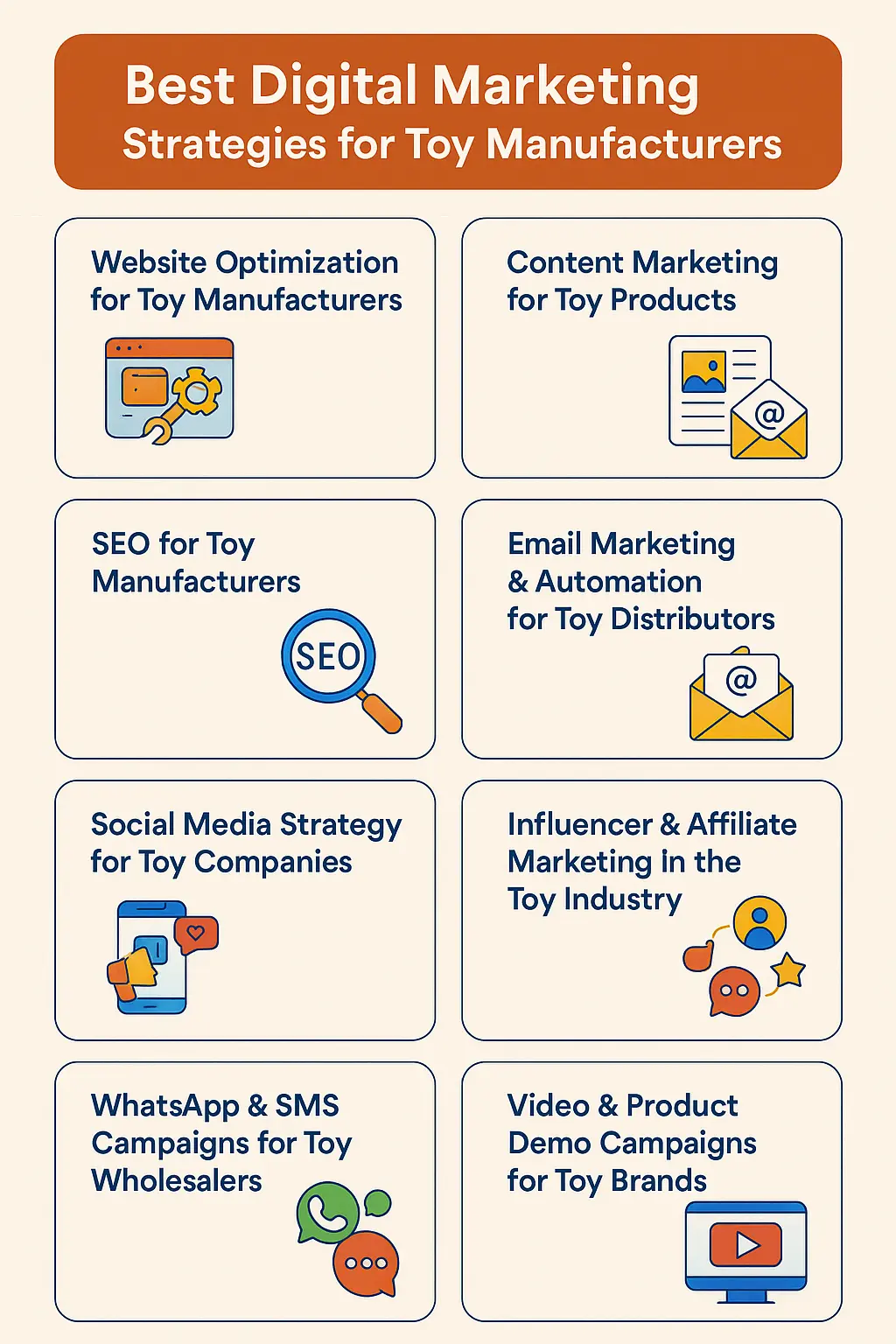
1. Website Optimization for Toy Manufacturers
A professionally designed website serves as your digital showroom and primary conversion tool. Toy manufacturers need websites that showcase product catalogs, safety certifications, and company credentials effectively.
Essential website elements include mobile responsiveness, fast loading speeds, clear product categorization, and prominent contact information. B2B buyers expect detailed product specifications, bulk pricing information, and easy quote request forms.
Conversion optimization for toy websites involves strategic placement of CTAs, trust signals like certifications, and streamlined navigation that guides visitors toward inquiry submission.
Essential website optimization elements:
- Mobile-responsive design with fast loading speeds (under 3 seconds)
- Clear product categorization with advanced filtering options
- Prominent safety certifications and compliance documentation
- Multi-language support for international markets
- Secure quote request forms with bulk pricing calculators
- Live chat functionality for immediate buyer inquiries
Conversion optimization strategies include:
- Strategic CTA placement on product pages and contact forms
- Trust signals like industry awards, certifications, and testimonials
- Progressive web app features for improved mobile experience
- A/B testing for landing pages and inquiry forms
2. Search Engine Optimization (SEO) for Toy Manufacturers
Search engine optimization ensures your toy products appear when buyers search online. Local SEO for toy wholesalers helps capture regional market opportunities, while technical SEO improves overall website performance.
Effective SEO services for toy exporters focusing on product-specific keywords, industry terminology, and geographic targeting. Content optimization around terms like "eco-friendly toy marketing" and "educational toy video marketing" attracts qualified traffic.
Link building through industry publications, trade show partnerships, and supplier directories strengthens domain authority and search rankings for competitive keywords.
Key SEO focus areas:
- Product-specific keyword optimization (educational toys, eco-friendly toys, STEM toys)
- Geographic targeting for export markets (India, USA, Europe, Middle East)
- Technical SEO including site speed, mobile optimization, and schema markup
- Content clusters around toy safety, educational benefits, and industry trends
- Local business listings for regional wholesale opportunities
Link building strategies:
- Industry publication guest posting and expert commentary
- Trade show partnership announcements and coverage
- Supplier directory submissions and industry association memberships
- Collaborative content with complementary businesses
3. Paid Advertising for Toy Brands (Google, LinkedIn, Meta)
Strategic paid advertising delivers immediate visibility and qualified leads for toy manufacturers. Google Ads target high-intent searches from retailers and distributors actively seeking toy suppliers.
LinkedIn advertising excels for B2B marketing for toy brands, reaching decision-makers at toy stores, educational institutions, and distribution companies. Campaign targeting includes job titles, company size, and industry classifications.
Meta advertising (Facebook and Instagram) effectively targets parents and gift-buyers while showcasing product demonstrations and user-generated content. Video ads perform particularly well for toy products.
Google Ads strategies:
- Search campaigns targeting high-intent keywords like "toy supplier" and "bulk toy orders"
- Shopping campaigns showcasing product catalogs with competitive pricing
- Display remarketing to re-engage website visitors
- YouTube advertising for product demonstration videos
LinkedIn B2B advertising:
- Sponsored content targeting toy store managers and educational institution buyers
- InMail campaigns for direct outreach to decision-makers
- Event promotion for trade shows and product launches
- Thought leadership content boosting for industry authority
Meta advertising approaches:
- Instagram Stories and Reels for visual product demonstrations
- Facebook Lead Ads with instant quote request forms
- Lookalike audiences based on existing wholesale customers
- Video testimonials and factory tour content
4. Social Media Strategy for Toy Companies
Social media platforms build brand awareness and engagement across multiple audience segments. Instagram and TikTok excel for visual toy demonstrations, while LinkedIn focuses on B2B relationship building.
Content strategy includes product showcases, behind-the-scenes manufacturing content, safety education, and user-generated content from satisfied customers. Consistency in posting and engagement drives long-term results.
Platform-specific approaches maximize effectiveness: Instagram for lifestyle content, YouTube for detailed product demonstrations, and LinkedIn for industry thought leadership.
Platform-specific strategies:
- Instagram : Product lifestyle shots, behind-the-scenes content, user-generated content
- LinkedIn : Industry insights, thought leadership articles, B2B networking
- TikTok : Creative product demonstrations, educational content, viral challenges
- YouTube : Detailed product reviews, factory tours, educational series
- Twitter: Industry news commentary, customer service, real-time updates
Content types that drive engagement:
- Product unboxing and demonstration videos
- Safety testing and quality assurance footage
- Customer success stories and testimonials
- Industry trend analysis and expert commentary
- Interactive polls and Q&A sessions
5. Content Marketing for Toy Products
High-quality content establishes expertise and attracts organic traffic. Blog posts about toy safety, educational benefits, and industry trends position manufacturers as trusted authorities.
Video content performs exceptionally well, including product demonstrations, factory tours, and educational content about toy development. This supports voice search optimization and featured snippet opportunities.
Content distribution through multiple channels—including email newsletters, social media, and industry publications—amplifies reach and engagement across target audiences.
Content strategy components:
- Educational blog posts: Toy safety guidelines, developmental benefits, age-appropriate selections
- Industry reports: Market trends, consumer behavior insights, regulatory updates
- Product guides: Comparison charts, buying guides, technical specifications
- Video content: Product demos, factory tours, expert interviews, how-to guides
- Downloadable resources: Catalogs, price sheets, compliance documentation
Distribution channels:
- Company blog with SEO optimization
- Industry publications and guest posting opportunities
- Social media platforms with platform-specific formatting
- Email newsletters for direct audience reach
- Trade show presentations and downloadable materials
6. Email Marketing & Automation for Toy Distributors
Email automation nurtures leads and maintains customer relationships throughout the lengthy B2B buying process. Automated sequences can include welcome series, product updates, and re-engagement campaigns.
Segmentation by buyer type (retailers vs. distributors vs. end consumers) enables personalized messaging that addresses specific needs and pain points. B2B sequences focus on bulk pricing and partnership opportunities.
Newsletter content includes industry news, new product launches, and exclusive offers for wholesale buyers, maintaining engagement between active purchase cycles.
Automated email sequences:
- Welcome series for new leads with company introduction and product highlights
- Product update announcements for new launches and seasonal items
- Re-engagement campaigns for inactive subscribers
- Order confirmation and shipping updates for wholesale buyers
- Annual contract renewal reminders with updated pricing
Segmentation strategies:
- Buyer type (retailers, distributors, educational institutions, international buyers)
- Purchase history and order volume
- Geographic location and market preferences
- Engagement level and email interaction patterns
7. Influencer & Affiliate Marketing in the Toy Industry
Influencer partnerships provide authentic product endorsements and expand reach to targeted demographics. Collaborations with parenting bloggers, educational content creators, and toy review channels drive awareness and credibility.
Affiliate programs incentivize independent sales representatives and industry partners to promote toy products. Commission structures and promotional materials support partner success.
Micro-influencer campaigns often deliver better ROI than celebrity partnerships, particularly for niche toy categories like STEM toys or eco-friendly products.
Influencer collaboration types:
- Parenting bloggers: Product reviews, educational content, safety discussions
- Educational content creators: STEM toy demonstrations, learning activity ideas
- Toy review channels: Unboxing videos, detailed product evaluations
- Family lifestyle influencers: Gift guides, holiday recommendations, family activities
Affiliate program structure:
- Commission-based partnerships with sales representatives
- Promotional materials including images, videos, and product information
- Performance tracking and reporting for partner optimization
- Exclusive discount codes for affiliate audience engagement
8. WhatsApp & SMS Campaigns for Toy Wholesalers
Direct messaging enables immediate communication with wholesale buyers and key accounts. WhatsApp Business facilitates order updates, product announcements, and customer support.
SMS campaigns work effectively for time-sensitive promotions, inventory updates, and trade show invitations. Personalization and timing optimization improve response rates.
Integration with CRM systems ensures consistent messaging and prevents over-communication with busy wholesale buyers.
WhatsApp Business applications:
- Order status updates and shipping notifications
- New product announcements with visual catalogs
- Customer support for technical questions and inquiries
- Group broadcasts for trade show invitations and industry updates
- Catalog sharing with instant quote capabilities
SMS campaign uses:
- Flash sales and limited-time promotional offers
- Trade show reminders and booth visit scheduling
- Inventory alerts for popular or seasonal products
- Payment reminders and account updates
9. Video & Product Demo Campaigns for Toy Brands
Video marketing showcases toy functionality and builds emotional connections with buyers. Product demonstrations, safety testing footage, and manufacturing quality content build trust and confidence.
Live streaming for product launches and Q&A sessions creates engagement opportunities with wholesale buyers and industry partners. Interactive content drives higher engagement rates.
YouTube optimization includes keyword-rich titles, detailed descriptions, and strategic thumbnail design to improve visibility in search results and suggested videos.
Video content types:
- Product demonstration videos highlighting key features and benefits
- Safety testing footage building trust and confidence
- Manufacturing process tours showcasing quality control
- Customer testimonials and success stories
- Educational content about toy development and design
Video optimization strategies:
- YouTube SEO with keyword-rich titles and descriptions
- Platform-specific formatting for Instagram, TikTok, and LinkedIn
- Closed captions for accessibility and silent viewing
- Call-to-action overlays driving website traffic and inquiries
Localization & Geographic Targeting for Global Toy Sales
International toy sales require strategic localization that goes beyond translation to reflect cultural values and boost conversions. Toy manufacturers in India must customize digital campaigns by region—adjusting messaging, pricing, and product visuals.
Understanding regional buyer behavior and compliance standards is key to success. Each target market demands localized experiences that match language, expectations, and safety norms.
Regional platform preferences vary widely:
- WeChat for China’s B2B market
- WhatsApp for South America and Middle East
- LinkedIn for Europe and North America distributors
Key localization success factors:
- Currency & Pricing: Show local currencies, bulk pricing for each region
- Cultural Adaptation: Use festive themes, localized colors, relevant product visuals
- Regulatory Compliance: CE (Europe), CPSIA (USA), BIS (India) certifications
- Shipping Transparency: Regional delivery estimates, customs-ready docs, duties info
- Payment Methods: Alipay (China), PayPal (global), B2B bank transfers
From Factory Floor to Global Store – Let Us Handle Your Digital Push
Overcoming Digital Marketing Challenges in the Toy Industry
Small toy manufacturers often face budget limitations and long buying cycles. Focusing on SEO and organic social media creates long-term value without high upfront costs.
Niche positioning and storytelling differentiate your brand from global giants. Highlight certifications, eco-materials, and company legacy to attract quality buyers.
Common toy industry marketing challenges:
- Long B2B Sales Cycles: Use email automation to nurture leads over 6–12 months
- Safety Marketing Needs: Showcase test reports, certificates, and safety videos
- Seasonal Demand: Plan campaigns around holidays and school terms
- Shipping Complexity: Offer full documentation and real-time delivery tracking
- Multiple Decision Makers: Create content for buyers, parents, safety managers
Metrics to Track Digital Marketing Success in the Toy Industry
Measuring success helps toy manufacturers optimize budgets and scale smartly. Track performance using KPIs like website traffic, wholesale leads, and conversion rates across platforms.
Attribution models help determine which digital channels generate the most valuable B2B customers. This means smarter marketing decisions and stronger ROI.
Core B2B metrics for global toy growth:
- Traffic Metrics: Organic vs. paid traffic, global vs. regional visitors
- Lead Quality: Inquiries from verified retailers, distributor contacts, catalog downloads
- Conversion Rates: Quote-to-order %, email open/click-through, form submissions
- Revenue Tracking: Average order value, purchase frequency, LTV by market
- ROI Measurement: CPA, ROAS, first-click vs. last-click attribution models
Accelerate Your Toy Brand's Digital Growth
Digital marketing for toy manufacturers requires specialized expertise, strategic planning, and consistent execution across multiple channels. The complexity of B2B sales cycles, international regulations, and competitive markets demands professional guidance for optimal results.
Ready to transform your toy manufacturing business with proven digital marketing strategies?
Wolfable's expert marketing team specializes in helping manufacturing companies achieve global growth through comprehensive digital strategies. Our services include SEO optimization, performance marketing, social media management, content creation, and lead generation specifically customized for the toy industry.
Take action today: Contact Wolfable at contact@wolfable.com or call +91 85113 93399 to discuss your toy brand's digital marketing objectives and discover how we can help you reach new markets and achieve sustainable growth.


